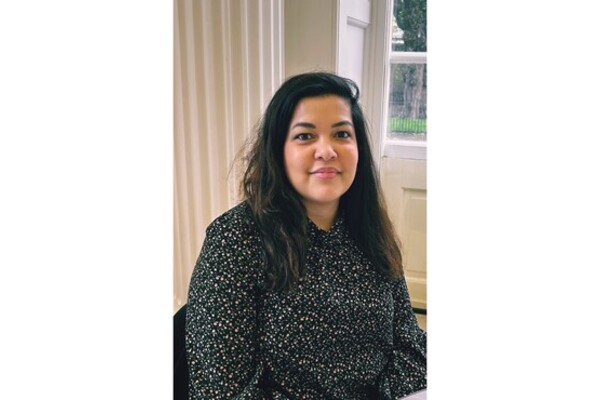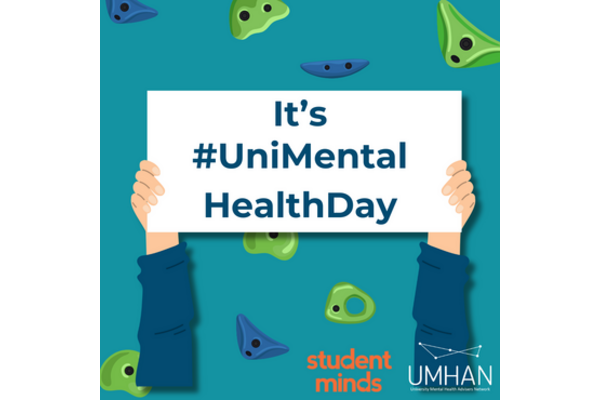Name
Lauren Beddis
Job title
Mental Health Coordinator (previously Specialist Mental Health Mentor)
Employer
University of Gloucestershire
How long have you worked in student mental health?
Six years
How long have you been in your current role?
I have worked as Specialist Mental Health Mentor for 5 years and will be starting a new role as Mental Health Coordinator as part of the Mental Health and Wellbeing Team this September 2024. This role will include DSA mentoring.
Can you outline your career and how you got to where you are today?
I began my career with a Psychology degree, and then went on to study a MSc in Counselling Psychology at Keele, which was also a BACP registered course. I worked as a counsellor at Mind first on placement and then as a volunteer, alongside working as an occupational therapist assistant in a secure rehabilitation unit for women with personality disorders. I then went on to become a telephone counsellor for an EAP, which I thoroughly enjoyed and also set up a small private practice for face to face work. I had always been interested in being a young people’s counsellor; in my private practice I tended to work with the 17-25 bracket and really enjoyed the work so when a job at my local university came as a MH Mentor I decided to go for it. I have always been an integrative practitioner and enjoyed creative approaches, CBT and solution focused ways of working with people so the more practical side of being a mentor really appealed to me as well as the education aspect.
How does your experience and training help you to do your job well?
I use my knowledge of mental health from both of my degrees daily and various other CPD training to help me to empathise with students and to help them to increase their own self-awareness and how they relate to their mental health. I also completed a counselling children and young people’s course, and this has helped me do my job better understanding more about developmental stages etc. I use my therapeutic skills daily, especially the core conditions to help me get alongside the student and do my best to see their world view and their obstacles. I also use CBT skills and solution focused questions when appropriate, but at the core, it is to the ability to build a trusting relationship in my experience that has been most useful.
Can you briefly explain your day-to-day responsibilities?
My work as mentor is primarily one to one work with students who have been diagnosed with a long standing mental health condition. It involved meeting the student either online or face to face, often weekly or fortnightly to give them a space to talk and for us to work collaboratively together to help the student find a way forward that is right for them. It involves helping the student set goals, identify their strengths as well as their hurdles, help them find solutions, or acceptance and to help build their autonomy. It can involve strategies, it can involve suggesting helpful tools at times. It also involves liaising with other relevant services, setting workplans with the students and reviewing progress regularly and keeping accurate notes and documents.
What’s helped you to stay in your role?
The students themselves, the sense of reward, the heart-warming relationships and the passion for the role and of course the humour and support of my colleagues and the university!
What part has UMHAN played in this?
UMHAN has helped me feel a sense of community and belonging in this relatively
undefined role, and a source of guidance. It has provided interesting meetings and CPD
opportunities and a way to connect with other professionals.
What’s your favourite part of your role?
Watching the students grow, change and learn and the lovely relationships which often the long term aspect of the role provides. Seeing a student achieve things they never thought they could no matter what it is a wonderful thing to be part of.
What has changed in student mental health since you started your role?
It has become more complex in the sense of more severe levels of anxiety and low mood, and more students with multiple conditions… and how can I forget Covid, that has had a huge impact on how people are managing their mental health. There has also been a huge increase in neurodiversity.
What do you think are the biggest remaining challenges?
The return to the “new normal”, mixture of online and face to face meetings getting the
right balance of who wants to be seen in which format, very big caseloads, the lack of
availability of external services, and communication issues across services.
Have you got any feedback from students that you could share with us?
"Recently I have had a challenging 3 weeks with my mental health. It has been extremely difficult to function on a day to day basis. I see Lauren on a weekly basis as I find her support tremendously helpful. Towards the end of the 3 week period, I walked in to our meeting after a extremely difficult week. Lauren is always flexible and adjusts to whatever I bring into our meetings. I don’t know what Lauren's background is but she is absolutely amazing!!!! Her knowledge and understanding on psychology and wellbeing practices always surprises me. The non judgement, practical advice and support she provides has helped me enormously. That particular week her ability to make me feel ok with having a low mood period, that I can manage it, I will be ok, I am doing well and to help reframe my mind is beyond words. I am struggling to express, how amazing Lauren is not just at her job but also her persona and her ability to make me feel ok being me. It is above and beyond the level of practical support. Lauren is a huge support to me during my studies at the university and I am so pleased I made the decision to use the mental health support services at the university rather than the contractors suggested by SFW. The university is lucky to have such a knowledgeable, personable and professional member of staff shining a light on a great service you can and do provide to your students who have mental health needs."









